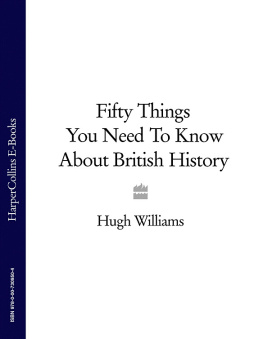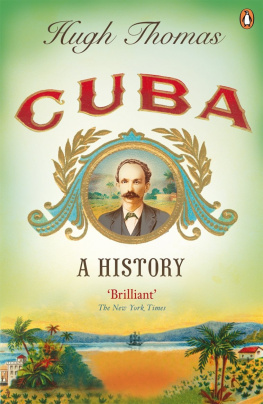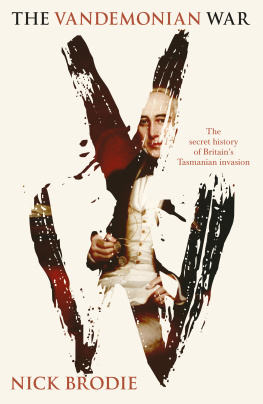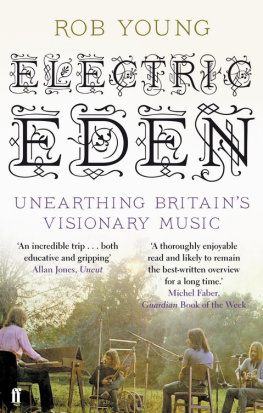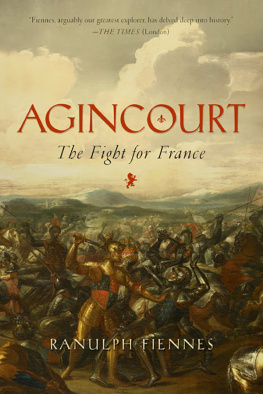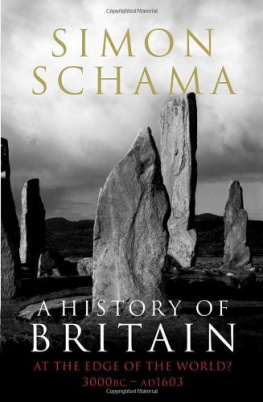Some years ago I was browsing in a bookshop in America. Ive always liked American bookshops; much of what they sell reveals the differences between our two countries. So it proved on this occasion. On the history shelf I found a paperback called WhatEvery American Should Know About American History by Alan Axelrod and Charles Phillips. Intrigued by the title, I bought it.
It turned out to be an intelligent and very readable canter through American history from the days of Viking exploration to the end of the Cold War. In all it covered 200 significant events, outlining the principal facts relating to each one. Enjoyable, unpretentious and above all, simple, it presented in a take-it-or-leave-it sort of way the story of the most powerful nation on earth. I enjoyed it immensely and felt my knowledge of American history had improved effortlessly. I also felt something else rather less heart-warming.
This book, I thought, could never be published in Britain. It was far too simplistic for all those sophisticated people who banged on about the Empire in a vague, unsympathetic way, or wrote off the whole of nineteenth-century Britain as a smoke-enveloped slum of exploitation and capitalist greed.
Disraeli once said that his wife could never remember which came first the Greeks or the Romans. Lots of people I met didnt know whether Henry VIII came before or after Charles I; they couldnt put the battles of Bannockburn, Bosworth and Blenheim in a historical order; and they hadnt a clue about events of such fundamental importance to their country as the Glorious Revolution or the Great Reform Bill. They were all happy, well-connected, successful people, and these holes in their knowledge had not hampered their lives in any palpable way. Or had they? Wasnt that the whole point? In Britain, lack of knowledge of the countrys past was becoming a badge of honour. All that mattered was now: look forward, never back. These people, I thought, would laugh at my American history book. They would dismiss it as an oddity, a typically American piece of patriotic fluff quite unsuitable for the more refined British way of life. I kept the book by my bed and my thoughts to myself.
I also began work on my idea. As a television executive with experience in factual programmes including current affairs, history and the arts, I wanted to find a way to transfer the approach to history Id found in that American book into a television series and a book about British history. They would have to run counter to current ingrained social attitudes. They would have more to do with the sort of history I read as a child G. M. Trevelyans Historyof England, or G. M. Youngs Portrait of an Age than the empathetic, judgemental, why-was-everyone-so beastly? school of history that seemed to be the preferred method of teaching it today. History should be straightforward, uncluttered and exciting. Above all, it should tell stories. The more I thought about it, the more I realised that the way to do this was to try to refine British history into a series of key events and explain the linkage between them. In this way I would be able to select the most interesting and exciting stories and put them into context, creating a framework so the readers and viewers would not only learn the details of a particular event, but also understand how it slotted into the progress of British history as a whole.
The idea was called Fifty Things You Need To Know About British History. Its moment has now arrived. Why?
There are two main reasons. The first is the growing realisation among many academics and politicians that the way we have been teaching history in our schools is wrong. By moving away from narrative the broad sweep of history to concentrating on isolated episodes we have educated a whole generation who may know quite a lot about, say, Oliver Cromwell and the Battle of the Somme, but pretty much zero about everything that happened in between. Thats not history.
Some distinguished historians have joined the debate about the way history is being taught in our schools. Simon Schama no newcomer to television himself argues for what he calls the three Cs: comprehensive chronological continuity. Tristram Hunt, a Cambridge academic who presented a television series on the English Civil War says: What children need to learn first is a clear narrative. Im all for empathy, but they can do that later. Schama agrees: If empathy means weepily identifying with victims, it can be sentimental mush. The ability to put oneself in someones shoes requires a lot of knowledge.
The second, and perhaps more important reason, is the growing recognition that a proper knowledge of your countrys history is an essential part of being a good citizen. Understanding a countrys past helps to identify its strengths. Prime Minister Gordon Brown, in a speech in 2007, said Britain has a unique history. British values have emerged from the long tidal flows of British history from the 2,000 years of successive waves of invasion, immigration, assimilation and trading partnerships. There is, he went on, a golden thread that runs through British history from Magna Carta to the Bill of Rights of 1689 to the democratic reform acts of the nineteenth century. Knowing about these things builds a sense of being British, which helps unite and unify us.
In other words, a knowledge of history is a badge of citizenship. Just as you would not call yourself a fan of a football club without knowing the history of its successes and defeats; or join a social club without knowing its rules, so you cannot call yourself a citizen without knowing how the country in which you live came to exist as it does today. If you have nothing to look back on, nothing to feel proud about, nothing to provide you with the understanding of where you came from and why, the present and the future stand without foundation and are therefore more prone to collapse. Human life is part of a continuum, not a vacuum. Thats why our history is important.
At the same time, the idea of history continues to be very popular. Through watching television documentaries and historical dramas and by visiting famous landmarks many people begin to understand, and enjoy, aspects of history that were probably denied to them before. But it can also remain elusive. It may be around us everywhere all the time, but how it fits together is often much more difficult to grasp. Unless youve been lucky enough to be well taught, history can appear rather overwhelming a dense mass of facts and dates that coalesce into an impenetrable fog. And nobody wants to set out into a fog if they can help it.
And so I have set out to provide a path through that fog. This book describes fifty key events in British history which, linked together, form an overview of our history. Those fifty events divide into five thematic chapters:
- Roots: The Origins of Britain describes where the British came from.
- Struggle: The Battles for Britain recounts some of Britains greatest conflicts.
- The Sea: Britain at Home and Abroad tells the story of the growth of the British Empire.
- Freedom: The Pursuit of Liberty is about the fight for individual freedom and the development of British democracy.
- Ingenuity: Britains Innovations lists some of the nations most important scientific, cultural and social changes.
So why choose these fifty things in particular? The events in this book are not the only fifty things you need to know about British history. They are what I, and the producers of the television series, think are fifty of the most important things. Some people will say that we should have excluded some and included others. Thats fine: history is not a perfect science and the differing judgements of individuals are just one of the things that make it interesting. History, as the historian Hugh Trevor-Roper said, is too subtle a process to be firmly seized or summarily decided.

